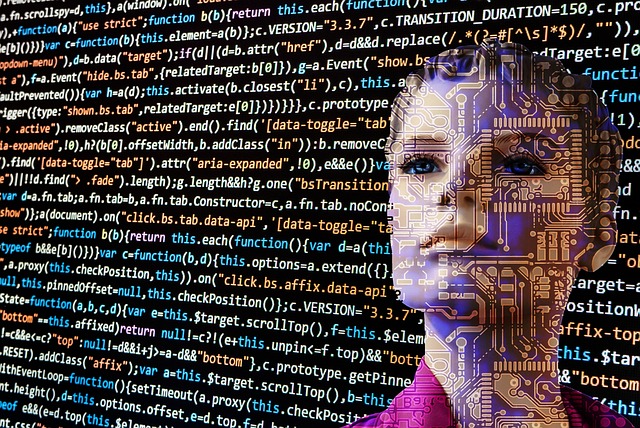The rapid advancement of Artificial Intelligence is transforming various industries and software testing is no exception. As AI-driven tools become more sophisticated, questions arise about the future role of Quality Assurance professionals. Will AI replace human testers or will it augment their capabilities? With the introduction of machine learning algorithms, AI can now analyze test results, predict defects and even write test cases based on historical data.
Companies like Google and Microsoft are already leveraging AI to enhance testing efficiency and reduce time-to-release. The growing adoption of AI in testing frameworks, such as Testim and Functionize, demonstrates a shift toward automation that goes beyond traditional scripting. However, despite these advances, human intuition and domain expertise remain critical in areas such as exploratory testing, usability evaluation and ethical decision-making.
Understanding how to collaborate effectively with AI technologies will become a key skill for QA professionals as the industry continues to evolve.

Free image source: https://pixabay.com/
Rise of AI in Software Testing
AI technologies are increasingly being integrated into software testing processes to enhance efficiency, coverage and accuracy. Traditionally manual and time-intensive tasks such as test case generation, defect detection, regression testing and performance analysis are now being automated using machine learning (ML), natural language processing (NLP) and computer vision techniques. According to a report by Leapwork, 79% of companies have already adopted AI-augmented testing tools, with 74% planning to increase investment in these technologies within the next year.
AI-powered tools can analyze historical test execution data to predict high-risk areas of code, allowing teams to prioritize testing efforts more effectively. Tools like Testim and Mabl use ML to create self-healing test scripts that automatically adapt to UI changes, significantly reducing maintenance overhead in rapidly evolving applications. Similarly, NLP-based solutions such as ReTest can interpret natural language requirements and convert them into executable test cases and bridging the gap between business logic and automation.
These capabilities are especially valuable in performance-sensitive, highly regulated domains such as online casinos. Casino review sites such as norskcasino must guarantee a secure and fair user experience to maintain both customer trust and regulatory compliance. AI-powered testing supports these goals by automating tasks such as test case generation, defect detection, regression testing and performance monitoring. These intelligent systems can adapt to frequent UI and backend changes, ensuring that updates do not introduce new bugs or vulnerabilities. AI helps simulate real-world user scenarios such as high traffic during peak gaming hours or edge cases in payment flows to validate performance and reliability under stress. Additionally, companies like AskUI are transforming UI automation through vision-based agents that mimic human interactions such as clicking buttons, validating layout shifts or interpreting visual feedback. This is particularly effective for online casino platforms, where rich graphical interfaces, spinning reels and animations are core to the user experience. Such visual regression testing ensures the integrity of these dynamic interfaces across devices and screen resolutions.
AI is also advancing intelligent exploratory testing, enabling tools to autonomously navigate an application, adapt to unexpected behavior and generate test paths in real time. This approach is well-suited for casino systems, which often include complex event chains like bonus activations, free spin sequences or jackpot triggers i.e. edge cases that scripted tests might overlook.
Another emerging application is predictive analytics, where AI models analyze historical defect data, performance metrics and player interaction logs to forecast potential points of failure in future releases. For casino operators, this can prevent costly downtime during peak hours or promotional campaigns, enhancing reliability and customer satisfaction.
Finally, embedding AI enables risk-based test selection, where only the most critical and impacted test cases are executed based on recent code changes. This approach shortens test cycles while preserving quality and allowing online casinos to push updates quickly, whether it’s for new game content, payment gateway changes or compliance-driven UI modifications.

Free image source: https://pixabay.com/
Human Testers vs. Artificial Intelligence
Even though AI significantly enhances software testing, it doesn’t eliminate the need for human testers. AI excels at automating repetitive and data-heavy tasks such as regression testing, test suite optimization and performance profiling, but it lacks the contextual awareness and critical reasoning needed for comprehensive quality assurance. According to a 2023 report by Capgemini, over 60% of QA teams believe human oversight is necessary even when using AI-based testing tools.
Human testers bring creativity, empathy and domain-specific intuition to the table. These are the qualities that are irreplaceable in areas like exploratory testing, usability evaluation and risk-based analysis. For instance, while AI can detect that a login button is broken, it may not understand that the placement or color of the button causes confusion for users, which only a human UX tester can observe and resolve. This is particularly important in online casinos, where user engagement and seamless navigation directly impact player retention and revenue. Human testers are crucial in evaluating the overall gameplay experience, ensuring that promotional banners, bonus triggers and payment flows are intuitive and error-free.
AI systems also require human oversight to function accurately and ethically. Human testers validate AI-generated test cases and outputs, identify false positives or negatives in bug reports and assess edge cases AI might miss. For example, tools like Testim or Applitools leverage AI for test creation and visual testing, but human QA professionals must still verify whether AI decisions reflect the real user experience.
In regulated industries such as healthcare, finance and online casinos, human testers are essential for verifying compliance. While AI helps identify transaction anomalies or UI bugs, it is the human tester who interprets regulatory implications and ensures ethical standards are upheld.
Additionally, humans are needed to train and fine-tune AI models used in testing. Test engineers must label datasets, define test coverage criteria and debug the AI itself when its outputs diverge from expected behavior. Companies like Sauce Labs and BrowserStack promote a hybrid model, where AI-driven automation accelerates routine checks, while skilled QA engineers handle complex scenario validation, exploratory testing and user journey simulation.
Ultimately, the most effective software testing strategies combine the speed and scalability of AI with the nuanced judgment and problem-solving ability of humans, thus creating a more reliable and intelligent QA process.

Free image source: https://pixabay.com/
Final Thoughts
AI is undeniably reshaping the landscape of software testing, offering tools that enhance efficiency and accuracy. However, rather than replacing human testers, AI serves as a powerful ally, handling routine tasks and allowing professionals to focus on complex, creative and ethical aspects of QA. As the field continues to evolve, QA professionals who adapt and collaborate with AI technologies will remain indispensable in delivering high-quality software solutions. Embracing continuous learning and gaining expertise in AI tools will empower testers to lead innovation rather than be sidelined by it. Ultimately, the future of QA lies in a harmonious blend of human insight and artificial intelligence, driving both efficiency and excellence.
This synergy is especially critical in highly regulated and high-stakes industries such as online casinos, healthcare, finance and aerospace where compliance, security and user trust must be maintained at all times. In these sectors, combining AI-driven automation with human oversight ensures robust testing of critical workflows, risk scenarios and regulatory requirements. As AI models continue to evolve, testers will increasingly take on strategic roles, i.e. defining intelligent test frameworks, curating training data and making judgment calls that machines cannot. By embracing this collaborative future, QA teams can help businesses accelerate delivery, improve software reliability and meet growing user expectations with confidence.


Your writing about software testing and AI has a way of making even this complex topics accessible and engaging. I’m constantly impressed by your ability to distill complicated concepts into easy-to-understand language.